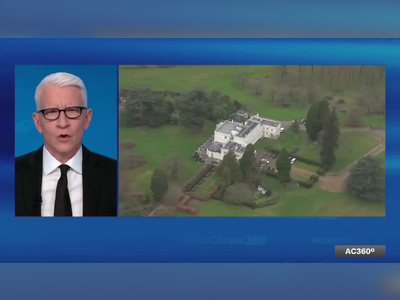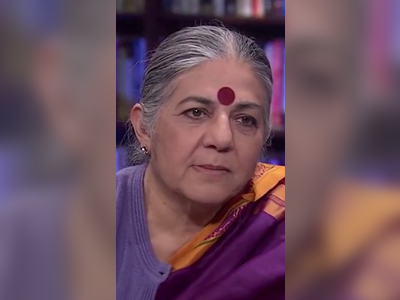
‘You don’t think strikes are the answer? What is?’ RMT’s Mick Lynch on work, dignity and union power
It is rare, these days, for the general secretary of a trade union, let alone a small one, to become a national figure. Yet Mick Lynch has done exactly that. The leader of the National Union of Rail, Maritime and Transport Workers (RMT), which represents 80,000 members, doesn’t like flattery. Nonetheless, as the rail strikes in Britain enter their third month, he will concede that “a lot of people are telling me I’m doing good”.
I meet him in the RMT’s boardroom, round the corner from Euston station in central London, where the RMT recently had 1,000 people turn up at very short notice, to support a picket line in the dispute between railway workers and Network Rail. Lynch looks, in his own words, like “the personification of what an RMT general secretary is”: white, male, bald, 60. He is making the point that he hopes the RMT will be more diverse in the future. He also looks like a man in charge of the moment: relaxed, with an easy sense of humour. I can’t think of a time in my life when that has been the stereotype of a trade unionist.
He has shot to prominence by going on TV and radio and running rings around everyone. Piers Morgan tried the most ridiculous attack line – why did he have a picture of a Thunderbirds baddie as his Facebook profile? Was it because he is a villain?
Lynch’s detached, almost amused scorn spoke for many of us, not just about Piers Morgan, but also about how long we have been putting up with a media culture that means you can find 17 stories about the orphan/pensioner/dog who had their day ruined by a rail strike, but if you want a sober explanation of what the strike is about you will have more luck on TikTok. (It is about whether railway workers will accept what the RMT says is a real-terms pay cut over the next two years, plus the loss of one‑third of frontline maintenance roles and half of scheduled maintenance work. In short, they will not.)
“The state of journalism,” he says, shaking his head. “The questions they ask are so …” He chooses his word carefully. “Dopey. They obviously don’t know what trade unions are. They think that we are all these cliches that they perpetuate. I’m a baron. My members are pawns. I can just move them about according to who I want to annoy that morning. Which is completely the wrong way around: unions are very democratic. It sounds a bit pompous, but the members are sovereign in this union. They tell us what to do.”
The traditional attacks on striking transport workers – that they are out to stop hard-working people getting to work, that they are better-paid than you anyway – are failing to land. A poll during the strikes in June showed that 70% of the public supported the railway workers getting a pay rise that took into account the cost of living. The classic, convoluted centre-left position, held by Labour – that the demands are fair but strikes are bad – has come unstuck; the same poll found that only 18% of people were opposed to railway workers’ right to strike. “The bishop of Durham was on a panel with me last week, saying: ‘I identify with the issues, but I don’t think strike action is the answer,’” Lynch says. “But what is the answer? Do we pray, or play tiddlywinks, or have a sponsored silence? What is there for working people to do if they’re not organised?”
Something has changed. Conservative MPs’ insistence that railway workers’ conditions are pretty good, actually, is no longer provoking kneejerk resentment; it is generating solidarity. At the launch rally last week for the cost of living campaign Enough Is Enough, Lynch brought the house down. “Our message must be this … the working class is back,” he said. “We refuse to be meek, we refuse to be humble, we refuse to wait for politicians and policy-writers – and we refuse to be poor any more.”
Today, he says: “They [the Tories] are saying: ‘Because you’ve got the final-salary pension, because you’ve got sick pay and decent holiday pay, because you’ve got the ability to negotiate and not just be consulted on your working time and working practices, that’s all out of date. You’re out of fashion.’ Everybody else in the country, at fulfilment centres or mega-warehouses, where they chase you around night and day, there’s no dignity in the work, is saying: ‘Well, why am I treated like this? Why can’t I have a union?’”
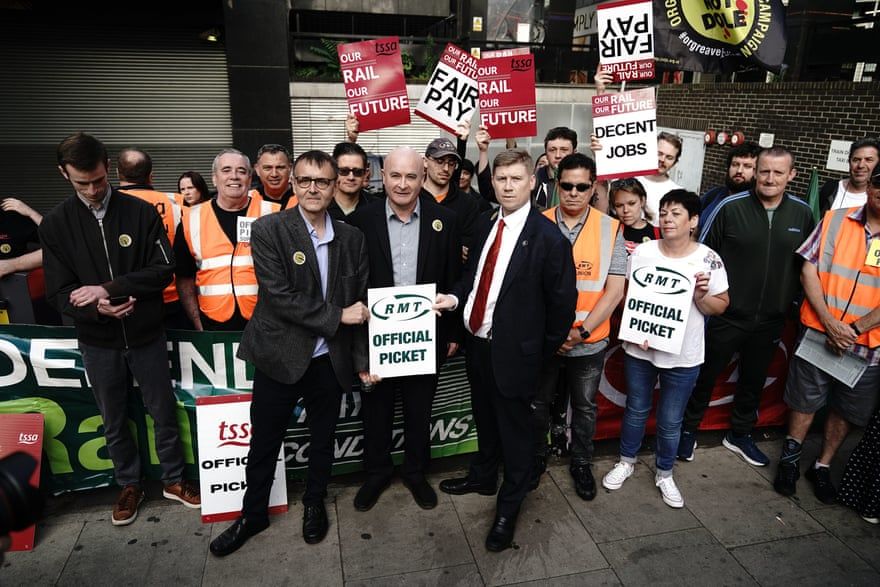 ‘People have lost the ability to organise’ … on the picket line at Euston station on 27 July.
‘People have lost the ability to organise’ … on the picket line at Euston station on 27 July.
Lynch had no great ambition to lead the RMT, he says. “I didn’t want Bob [Crow, a lefty firebrand who died at 52 in 2014 of a heart attack] to pass on, and I didn’t want Mick Cash to have to retire last year, but he did. So we’re here. I didn’t become an officer in this union till I was 54. I didn’t have a trade union career. I was out doing my shifts. I was on the tools for 37 years, as an electrician.”
Lynch has never been on a trade union course. He says there is nothing special about him, or the way he argues. “There’s lots of people who could be in my position, doing what I’m doing. And that’s what they find so shocking, middle-class journalists, present company excepted: that they meet somebody who might have read something in their own time, or is able to go toe to toe with senior people in industry while being on the tools.”
He was born in Paddington, west London, to Irish parents. It was a big family (he is one of five) with no money (his father, a shop steward, went on strike for seven weeks in 1971 and the hit on their income was unimaginable). He says he didn’t notice, because he was the youngest and his siblings shielded him from it. “But you weren’t indebted. That was the key difference in working-class communities. People now are carrying debt that my parents would have thought: ‘That is impossible.’”
He left school at 16 and did an apprenticeship. He rattles through his brothers’ and sister’s work – a painter-decorator, a teacher, a plasterer, a midwife – to illustrate that the horizons were fairly broad, especially with free tertiary education. There were a lot of jobs, and the workplace was quite attractive, before Margaret Thatcher came to power.
His childhood was happy, he says: “I’ve got no complaints. We were a coherent family. My mum and dad didn’t split up. None of us went to prison. We weren’t in trouble; we were a respectable family. But, from my memory, there were a lot of families like that. Everyone paints working-class communities as being in crisis the whole time, as if there’s no sense of humour, there’s no fun or joy.”
He worked in construction until he was blacklisted for union organising, at which point he moved to the railways. As happy as he is to talk about the casualisation of the building industry, he is careful to underline that declining conditions are a problem for everyone. “In your industry [journalism], people who are stringers or casualised find it very difficult. In universities, there’s no security whatsoever [for early-career lecturers and researchers and, increasingly, with ‘fire and rehire’, for mid-career academics]. People are beholden to whoever’s doling out the work.”
The reasons for this have to do with more than the decline of unionisation, he says. “People have lost the ability to organise generally, I think, even in communities. Where I grew up, there was a residents’ association, which had some of the most fearsome women you’d ever deal with – working-class women, who could stand up and articulate in front of councillors exactly the services they wanted.”
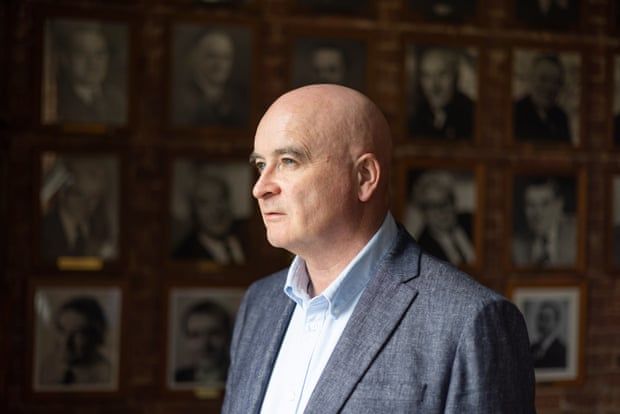 ‘Everyone paints working-class communities as being in crisis the whole time’ … at the RMT’s head office in central London.
‘Everyone paints working-class communities as being in crisis the whole time’ … at the RMT’s head office in central London.
Then there is the fact we are two generations on from Thatcher. A lot of working people aren’t old enough to remember the assumptions of the mid-80s, when “you’d expect a level of dignity. You respected people for being workers and you had to respect workers’ organisations … People have been told that they should be grateful for having a job, grateful for earning a living. They’ve been told that if you can’t earn enough in one job, to go and get a second job.”
But you could argue Tony Blair was even more influential than Thatcher, in terms of outsourcing and subcontracting on a huge scale. Now, the NHS, TfL and many other employers get their cleaners from a third party, while local authorities subcontract their housing duties to housing associations and their social care duties to exploitative providers. The results have been catastrophic for working and living conditions.
In the care sector, for example, you will find workers paid the minimum wage in 15-minute segments and expected to provide the car and fuel to get them from one appointment to the next – yet they don’t strike, “because it affects people who need their care”. Plus, of course, poverty wages strip away the option of forgoing pay.
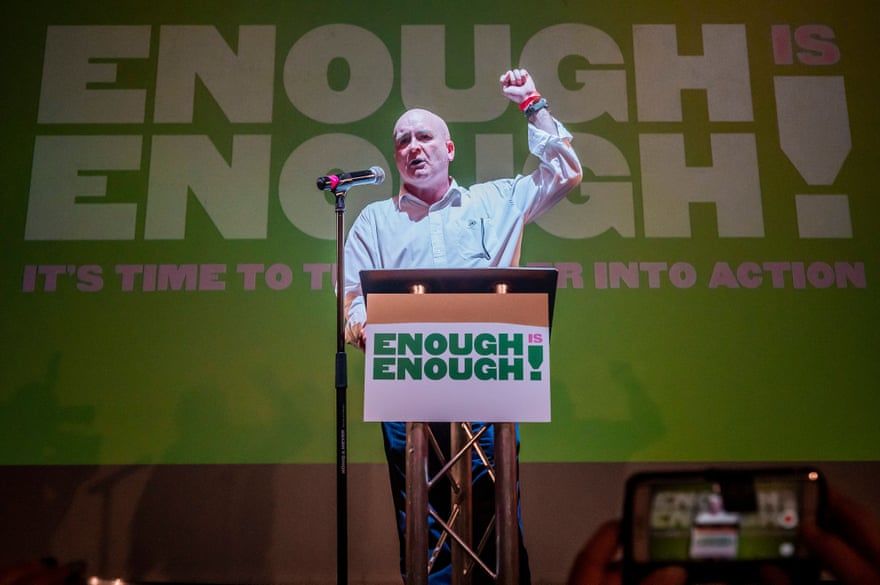 ‘We refuse to be poor any more’ … speaking at the launch of the Enough Is Enough campaign in south London this month.
‘We refuse to be poor any more’ … speaking at the launch of the Enough Is Enough campaign in south London this month.
On this point, he has a gripe about the EU: “Everyone told us the European Union would solve all this.” This riles me a bit: however we got here, it wasn’t via Brussels. The RMT was a pro-Brexit union. It is not affiliated to Labour and can’t be held responsible for the party’s fudge, but it still contributed, I think, to the split on the left over Brexit that left Boris Johnson looking like the one with the answers.
He deflects that: the RMT is a small union; it wasn’t that influential; in any case, he still opposes the EU for its lack of democratic levers. “But I’m not making the point about remain or leave. Frankly, I find all that tedious now. The point I’m making is that we can’t wait for court judgments and policy decisions. What I’m trying to encourage, with Sharon Graham [the general secretary of Unite] and Dave Ward [the general secretary of the Communication Workers Union] and others, is we’ve got to put the industrial flag up.”
The RMT’s next campaign will be for cleaners in the transport industry. Lynch wants to get other unions involved, for cleaners in the NHS and beyond. The long game is to “punch a hole in subcontracting and make it really expensive. It’s a means of exploitation and people are fed up. Labour have got to say: ‘We believe in in-house work.’”
He rattles off a list of other things the opposition should say: end low pay; end the housing crisis with municipally run, municipally owned council homes; end food poverty. “You’ve got to get people to identify with you, through values.” He shrugs off Keir Starmer’s proposal to freeze the energy price cap as insufficiently radical: “That’s gonna cost £60bn. So we’re gonna take that money off ourselves and give it to those companies to subsidise the price they’re charging the people they’re getting the money off.”
He would rather the government sequestered North Sea gas and capped the wholesale price. I run this past a friend later, who remarks sarcastically: “It worked for Hugo Chávez.” The Venezuelan president nationalised important industries in the 00s, but by the time of his death in 2013 the country was struggling with high inflation and endless shortages. But socialist chaos looks a lot less scary in the middle of a crisis of late-stage capitalism.
Lynch was attacked in various newspapers last week as a Putin apologist, after accusing the EU of empire-building and saying: “There were a lot of corrupt politicians in Ukraine.” That was true before Volodymyr Zelenskiy, but has also been one of Putin’s attack lines. It is hard not to see it as a response to his popularity, an attempt to discredit him, but he is sanguine about it.
“Anyone that knows me in this organisation knows that I condemned the Soviet Union; I thought it was a murderous death cult. I never played with any of the symbolism of red stars and hammers and sickles. All oppressive regimes, without exception, are oppressive of workers and peasants. And then people tell me I’m a Putin apologist? I’m not. Putin should stop the war, get out of Ukraine and respect the sovereignty of that nation.”
It is unrealistic at this point to think that we can avoid a Liz Truss government, however long it lasts. She has promised to go to war with unions, pledging legislation within 30 days to curb union powers; Grant Shapps, the transport secretary, has chimed in to threaten redundancies. “So they’re escalating the battle. We’re going to have to respond in kind. But this will need a union‑wide response. It needs the Labour party, because they are the movement. We’re going to need the support of the community and the whole of Britain’s public opinion. It’s got to be bigger than my trade union, because we’re not able to do this on our own.”








